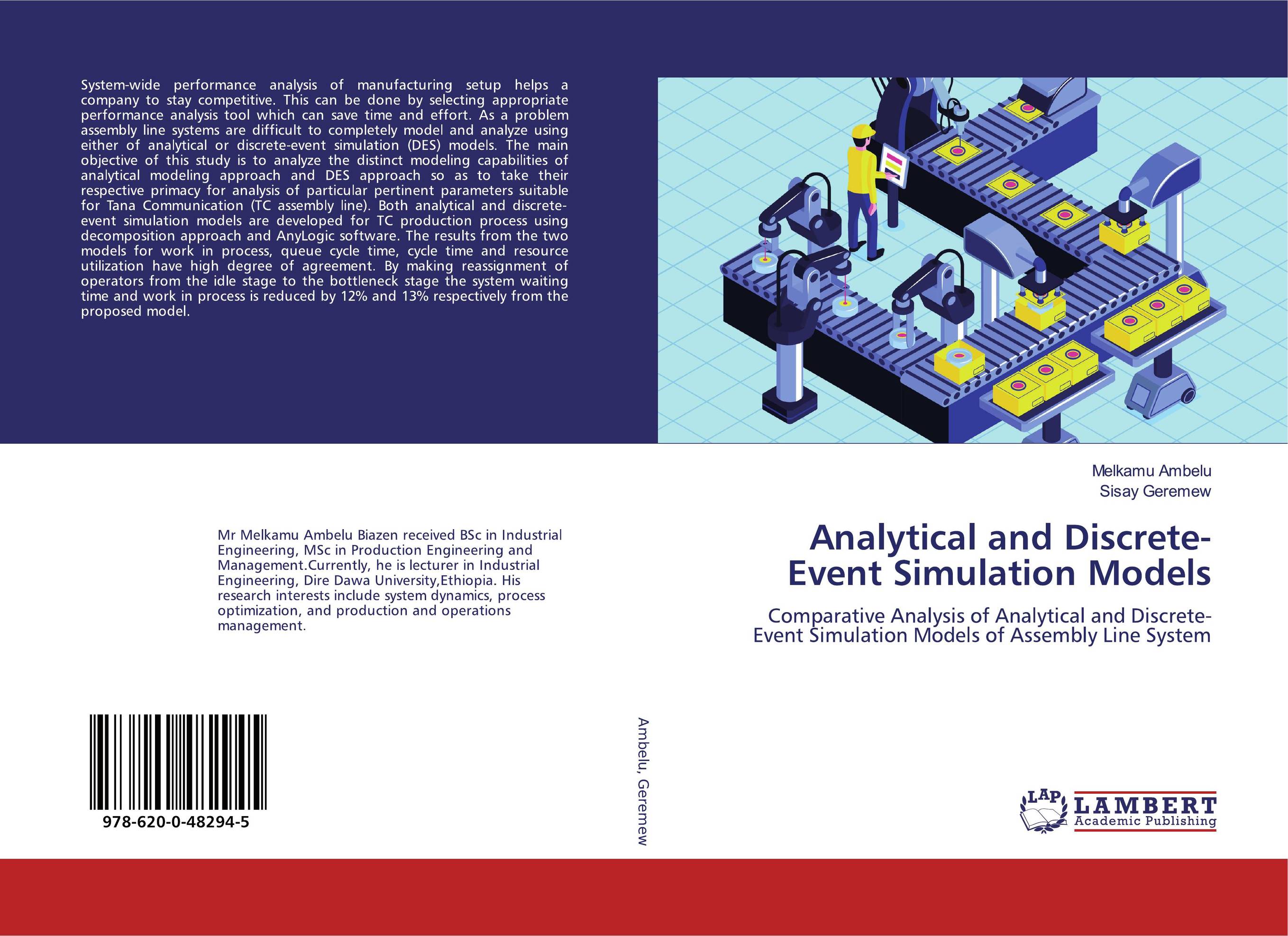| Поиск по каталогу |
|
(строгое соответствие)
|
- Профессиональная
- Научно-популярная
- Художественная
- Публицистика
- Детская
- Искусство
- Хобби, семья, дом
- Спорт
- Путеводители
- Блокноты, тетради, открытки
Analytical and Discrete-Event Simulation Models. Comparative Analysis of Analytical and Discrete-Event Simulation Models of Assembly Line System

В наличии
| Местонахождение: Алматы | Состояние экземпляра: новый |

Бумажная
версия
версия
Автор: Melkamu Ambelu and Sisay Geremew
ISBN: 9786200482945
Год издания: 2019
Формат книги: 60×90/16 (145×215 мм)
Количество страниц: 108
Издательство: LAP LAMBERT Academic Publishing
Цена: 32173 тг
Положить в корзину
Позиции в рубрикаторе
Сферы деятельности:Код товара: 507382
| Способы доставки в город Алматы * комплектация (срок до отгрузки) не более 2 рабочих дней |
| Самовывоз из города Алматы (пункты самовывоза партнёра CDEK) |
| Курьерская доставка CDEK из города Москва |
| Доставка Почтой России из города Москва |
Аннотация: System-wide performance analysis of manufacturing setup helps a company to stay competitive. This can be done by selecting appropriate performance analysis tool which can save time and effort. As a problem assembly line systems are difficult to completely model and analyze using either of analytical or discrete-event simulation (DES) models. The main objective of this study is to analyze the distinct modeling capabilities of analytical modeling approach and DES approach so as to take their respective primacy for analysis of particular pertinent parameters suitable for Tana Communication (TC assembly line). Both analytical and discrete-event simulation models are developed for TC production process using decomposition approach and AnyLogic software. The results from the two models for work in process, queue cycle time, cycle time and resource utilization have high degree of agreement. By making reassignment of operators from the idle stage to the bottleneck stage the system waiting time and work in process is reduced by 12% and 13% respectively from the proposed model.
Ключевые слова: Analytical Model, Discrete-event simulation, Modeling, pertinent, Parameters



